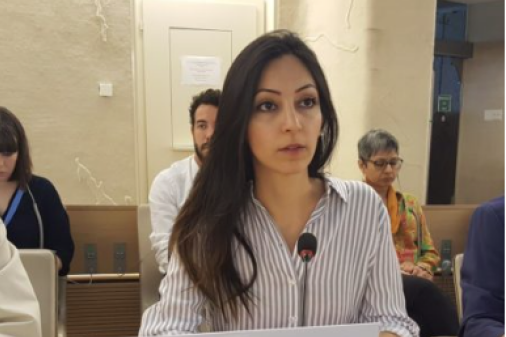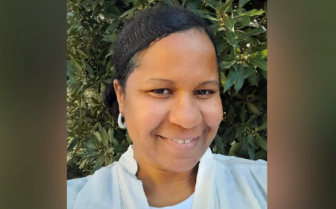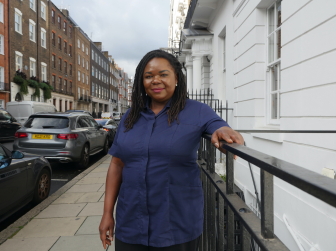An Iranian Christian woman has pleaded today with the UN's Human Rights Council today to urge Iran to overturn 'false and baseless charges' imposed on her father, mother and brother.
Dabrina Bet-Tamraz's parents and brother are appealing against lengthy jail sentences they have received for church-related activities, according to World Watch Monitor, with her father Victor Bet-Tamraz's appeal against a 10-year prison sentence due to be heard today.

Speaking on behalf of the World Evangelical Alliance, she told UNHRC officials in Geneva her family had been falsely accused of 'acting against national security and against the Iranian government by organising illegal gatherings, attending a seminary abroad and training church leaders and pastors to act as spies'.
The accusations, she said, were 'false, and a grave injustice'.
She added that her family's experience was not an isolated case. 'There are many Iranian Christians today serving sentences for similar baseless accusations. This is wrong. And these court cases must stop,' she said.
'Iranian Christians are not terrorists, as my father said this in his last court hearing, and I repeat: "We love our country. We pray for our authorities. We have no intentions against the government."'
Pastor Victor Bet-Tamraz is appealing against a sentence he received last July. His wife, Shamiram Isavi, is appealing against her own five-year prison sentence.
The couple's son, Ramil, is also awaiting news of his fate following a court appearance on 18 June. He and three men who had converted to Christianity were charged with 'acting against national security' by joining house churches. The verdict is expected by the end of the month, the advocacy group Middle East Concern reported. Arrested in August 2016, he is out on bail.
Dabrina Bet-Tamraz told World Watch Monitor that her parents had had to put the value of their house as a surety against the bail costs.
She added that when security officials raided the family home at Christmas 2014, they confiscated 'computers, a laptop, passports, ID cards, documents relating to my parents' house and the car, my parents' marriage certificate, books, Bibles, CDs of worship music, all electronic devices, money and bank cards'.
She said prison sentences for Christians are getting longer, and that someone who converted to Christianity from Islam would usually get a sentence of five years or more.
'The government´s treatment of minorities has got worse over the last 10 years,' she said. 'All minorities, whether Catholic, Orthodox or Evangelicals, are facing ever-increasing restrictions and limitations in the context of practising their faith, as well as in their everyday lives.'









